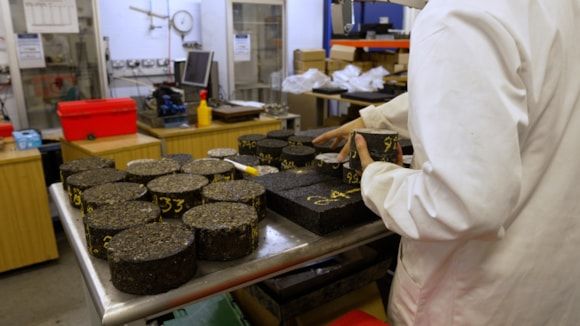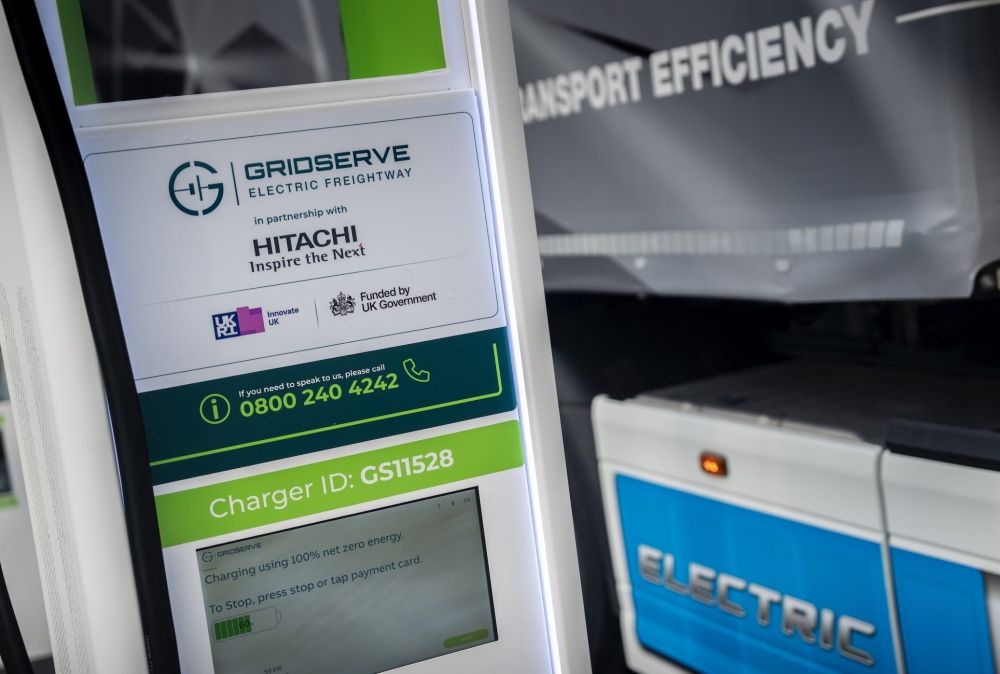National Highways has trialled one of the lowest carbon asphalt resurfacing scheme on England’s motorways and major A roads.
The trial, which will begin in Yorkshire on the A64 from Bramham to Headley Bar, involves using a new asphalt tested by engineers at the University of Nottingham.
The trial is expected to reduce carbon emissions by nearly 70%, from 321 tonnes to 96 tonnes – equivalent to 229 one-way plane trips from Paris to New York.
These tests include wheel tracking tests, stiffness tests, and a surface wear test to ensure it is ready for drivers. The surface asphalt materials also include an anti-ageing additive that should extend the life of the road surface by three to five years.
It also aims to decarbonise several aspects of the project, including an electric roller and hydrotreated vegetable oil (HVO), a lower carbon diesel substitute, used as an alternative power source for asphalt manufacturing plant and haulage vehicles. Solar power was used in facilities like toilets and changing facilities.
Director of Environmental Sustainability Stephen Elderkin said:
“We’re changing the way we work to decarbonise construction on our roads, a crucial challenge of helping the UK to thrive as a low carbon economy.
“These projects will pave the way for changes that make a huge difference by protecting the environment, reducing noise and improving the roads for drivers.”
This trial is one of many projects National Highways is undertaking to achieve net zero carbon travel on our roads by 2050.
The organisation is one of the first to have approved science-based net-zero targets through the Science Based Targets initiative (SBTi), across the Ground Transportation – Highways and Rail tracks sector.
National Highways is also working in partnership with the national charity the Tree Council to plant three million new trees by 2030 around the road network.
Image of a student from the University of Nottingham organising material for testing courtesy of National Highways












